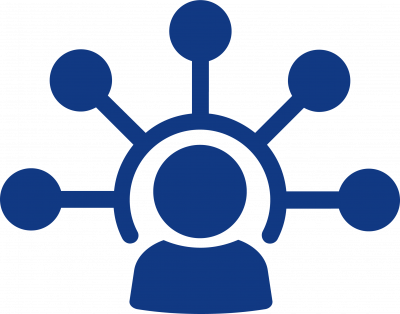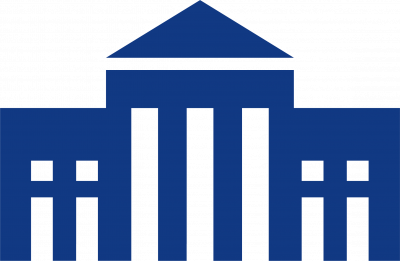-
Feb18
-
Feb18
-
Feb18
-
Feb20
-
Feb23
Web cookies (also called HTTP cookies, browser cookies, or simply cookies) are small pieces of data that websites store on your device (computer, phone, etc.) through your web browser. They are used to remember information about you and your interactions with the site.
Session Management:
Keeping you logged in
Remembering items in a shopping cart
Saving language or theme preferences
Personalization:
Tailoring content or ads based on your previous activity
Tracking & Analytics:
Monitoring browsing behavior for analytics or marketing purposes
Session Cookies:
Temporary; deleted when you close your browser
Used for things like keeping you logged in during a single session
Persistent Cookies:
Stored on your device until they expire or are manually deleted
Used for remembering login credentials, settings, etc.
First-Party Cookies:
Set by the website you're visiting directly
Third-Party Cookies:
Set by other domains (usually advertisers) embedded in the website
Commonly used for tracking across multiple sites
Authentication cookies are a special type of web cookie used to identify and verify a user after they log in to a website or web application.
Once you log in to a site, the server creates an authentication cookie and sends it to your browser. This cookie:
Proves to the website that you're logged in
Prevents you from having to log in again on every page you visit
Can persist across sessions if you select "Remember me"
Typically, it contains:
A unique session ID (not your actual password)
Optional metadata (e.g., expiration time, security flags)
Analytics cookies are cookies used to collect data about how visitors interact with a website. Their primary purpose is to help website owners understand and improve user experience by analyzing things like:
How users navigate the site
Which pages are most/least visited
How long users stay on each page
What device, browser, or location the user is from
Some examples of data analytics cookies may collect:
Page views and time spent on pages
Click paths (how users move from page to page)
Bounce rate (users who leave without interacting)
User demographics (location, language, device)
Referring websites (how users arrived at the site)
Here’s how you can disable cookies in common browsers:
Open Chrome and click the three vertical dots in the top-right corner.
Go to Settings > Privacy and security > Cookies and other site data.
Choose your preferred option:
Block all cookies (not recommended, can break most websites).
Block third-party cookies (can block ads and tracking cookies).
Open Firefox and click the three horizontal lines in the top-right corner.
Go to Settings > Privacy & Security.
Under the Enhanced Tracking Protection section, choose Strict to block most cookies or Custom to manually choose which cookies to block.
Open Safari and click Safari in the top-left corner of the screen.
Go to Preferences > Privacy.
Check Block all cookies to stop all cookies, or select options to block third-party cookies.
Open Edge and click the three horizontal dots in the top-right corner.
Go to Settings > Privacy, search, and services > Cookies and site permissions.
Select your cookie settings from there, including blocking all cookies or blocking third-party cookies.
For Safari on iOS: Go to Settings > Safari > Privacy & Security > Block All Cookies.
For Chrome on Android: Open the app, tap the three dots, go to Settings > Privacy and security > Cookies.
Disabling cookies can make your online experience more difficult. Some websites may not load properly, or you may be logged out frequently. Also, certain features may not work as expected.
Career-driven non-credit programs designed for working professionals and lifelong learners.
The Office of Continuing and Professional Education (OCPE) was formed in response to the needs of professional learners interested in research-based, high-caliber noncredit programs. In partnership with the faculty of the schools and colleges at the University of Connecticut, we offer noncredit short courses for professional development and personal interest, growth and engagement. Course delivery includes face-to-face, synchronous, asynchronous, and hybrid courses. These include online short courses in business, performance art, social work, engineering, pharmacy, nursing, and education, to name a few. Also, working with UConn’s partner, FutureLearn, we deliver global Massive Open Online Courses available to anyone.

BUILD WORKFORCE SKILLS
Develop new skills and create opportunities for advancement with professional development aligned to career goals and organizational needs

A TRUSTED SOURCE
Learn from a top tier research 1 institution with recognized faculty who lead diverse and engaging programs that deliver high-quality learning that builds new skills and knowledge
GLOBAL LEARNING
In partnership with FutureLearn, experience social and peer-to-peer learning with learners from around the world, developed by recognized UConn faculty

OCPE partners with business and industry in support of workforce development to deliver professional development, consulting or training programs.

UConn’s open online courses support global learners interested in continual learning opportunities across a variety of topics that are both introductory level and advanced courses.

With UConn's Bachelor of General Studies (BGS) flexible degree completion program, you can achieve your college goals. Complete your degree at your own pace, and on your schedule.

Register for courses with easy self-registration. Browse courses by school and college through Blackboard learning management system and get started today.

OCPE can assist those interested in tuition reimbursement, employee partnerships, and community outreach.

Our professional staff and faculty are available to help with questions. From implementing a course, finding resources, cost and fees, etc.

This section includes documentation that outlines the process for creating and designing professional development short courses and OCPE’s role in supporting the process.

lkajd kldajflk jioawjflkjd. lkadjlksj flkdjf kljj alkajdfl adf jjdlf jlskjf oiwjfodj oajd oadsjf lskjfl lsdjf lsjflsj ldskj lskjl.

Our professional staff and faculty are available to help with questions. From implementing a course, finding resources, cost and fees, etc.
Register for courses with easy self-registration. Browse courses by school and college through Blackboard learning management system.
kjdladjflkadj lajdfl jadljf ladkfj lslksadjf alsd;kjf laskdfjljfl;kadjf l;aksdjf l;ksdajfl; laksdjflks lkasdjfljas;ljf ;lkaszjfl;sjff sl;k.
Our professional staff and faculty are available to help with questions. From implementing a course, finding resources, cost and fees, etc.
Upcoming Events
News and Updates
Intro sentence about the subject...
Intro sentence about the subject...
Intro sentence about the subject...